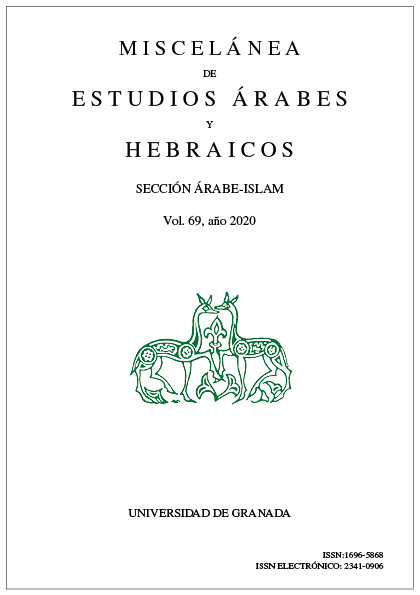The unreal and the experimental in two new fiction movements: “the Egyptian New Novel” and “the Spanish New Light” and their links with Borges
DOI:
https://doi.org/10.30827/meaharabe.v69i0.1059Keywords:
La Luz Nueva, New Egyptian Novel, Ṭarīq Imām, Manṣūra, 'Izz al-Dīn, Muṣṭafà DhikrīAbstract
In two very different sociocultural contexts, two fiction movements appear almost simultaneously, with many links to Jorge Luis Borges and other commonalities as well. The first movement is the Spanish “Luz Nueva” and the second is the Egyptian “New Novel” or al-Riwāya al-Jadīda. Both movements present postmodernist and unreal /fantastic novels with a high degree of formal experimentation and fragmentation, that are freshly imagined and have a significant metaphysical dimension. The referent of these movements is Borges, whose production has always shown the influence of the Arabic narrative heritage on his craft. This study adopts the “Travelling theory” of Edward Said, in which the Palestinian theorist argues that ideas travel across cultures, peoples, and writers. And in each new context the ideas gain new definitions and lives. Bearing in mind this reflection, we investigate the connections, implications, and affinities between the two movements, taking into account that their writers have not corresponded with each other.
Downloads
Downloads
Published
How to Cite
Issue
Section
License
The authors publishing their work in this journal agree to the following terms and conditions:
1. The authors retain the copyright and give the journal the right to be the first publication of the work and also to be licensee under a Creative Commons Attribution License which allows others to share the work, provided the author of the work and the initial publication in this journal are acknowledged.
2. Authors may make additional agreements separately for the non-exclusive distribution of the version of the work published in the journal (for example, putting it in an institutional repository or publishing it in a book), with acknowledgement of its initial publication in this journal.
3. Authors are allowed and encouraged to electronically disseminate (for example, in institutional repositories or on their own web page) the published version of their works (publisher's post-print version) or, if not possible, the author's reviewed and accepted post-print version. This is to facilitate productive exchanges, and allow for earlier and greater citation by third parties of the published works (See The Effect of Open Access).
4. The journal accepts no responsibility for the opinions expressed by the authors.



















